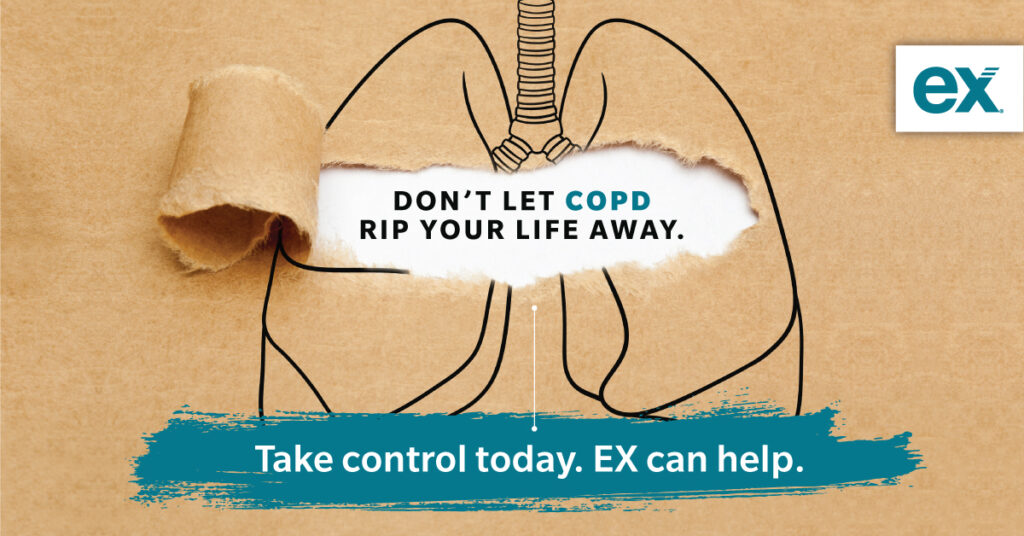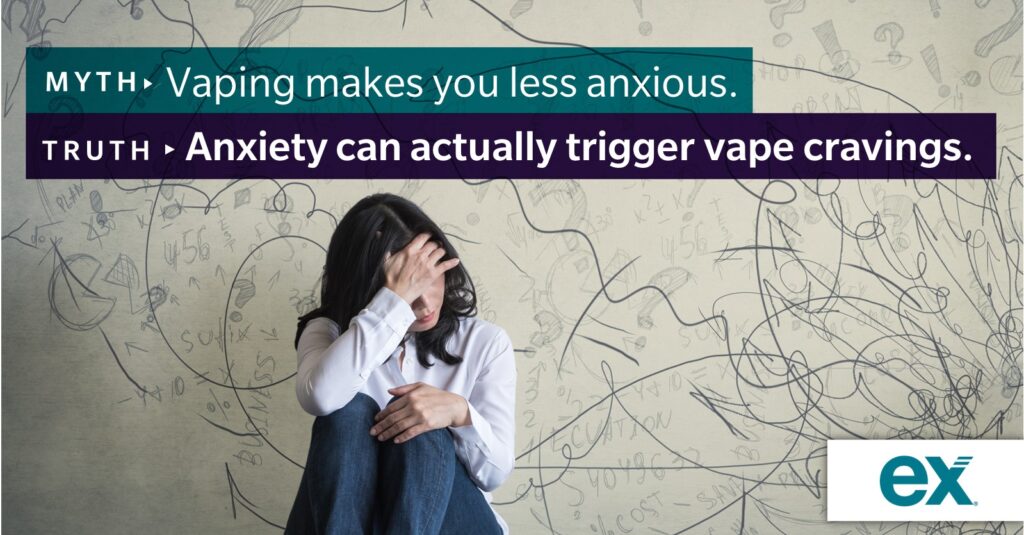This October is a twofer when it comes to promoting the benefits of quitting tobacco. it’s Healthy Lung Month and Emotional Wellness Month.
While every month is a good time to engage tobacco users in quitting, these 2 themes in 1 month give you a solid framework to emotionally connect with tobacco users.
Here’s why.
Health concerns (including healthy lungs) are the main reasons that tobacco users try to quit on EX. Many (79%) are worried about their current health and 72% say future health concerns are what’s prompting them to quit.
In addition, mental health issues remain a top priority for many employers. Now is the time to reinforce to tobacco users that quitting tobacco can actually reduce stress and anxiety—and the right program can give them social support to quit wherever they are.
Promoting Healthy Lung Month
Looking for tips on what to promote to tobacco users about the value of quitting for improved lung health?
Here are a few facts you can use:
- Smoking is the leading cause of chronic obstructive pulmonary disease (COPD), a group of diseases that cause airflow blockage and breathing-related problems.
- Compared to nonsmokers, smokers are 12 to 13 times more likely to die from COPD, including emphysema and chronic bronchitis.
- Smoking tobacco causes most cases of lung cancer.
- Vaping negatively affects lung health. E-cigarette aerosol harms lung cells, causes inflammation, and diminishes the ability of the lungs to respond to infection. Not inhaling chemicals into the lungs is the best way to protect lung health.
For our clients, here is just one example of a campaign we customize to promote Healthy Lung Month.
Learn more about the connection between COPD and tobacco in our blog Top Facts about COPD and Smoking.
Connecting Tobacco with Emotional Wellness Month
Emotional wellness is the ability to successfully handle life’s stresses and adapt to change and difficult times.
Unfortunately, stress and tobacco use often go hand in hand.
High stress has been shown to be associated with both continued tobacco use or resistance to quitting, as well as increased likelihood for relapse for those who are making quit efforts.
Smokers often report they smoke to relax or reduce tension, particularly in response to stress, and in response to anxiety, sadness, and anger. Smoking may increase smokers’ perceived control over stressors and they may perceive that smoking is an effective way to cope with stress and anxiety.
But that’s a myth.
See more myths in our blog 4 Myths about Tobacco Use and Employee Mental Health.
Regular use of tobacco can make it more difficult to experience stress relief.
Early on, most smokers experience relief of stress and anxiety but regular use of cigarettes shortly leads to brain changes that make it harder to feel stress relief. Within a short time, virtually every smoker feels increased stress and psychological distress with greater anxiety and feelings of depression as a direct result of continued smoking and dependence on nicotine.
Use the month of October to dispel the myths about tobacco use and emotional wellness by promoting the truths. For example, here is a snapshot of a campaign that our clients use to raise awareness about the connection of mental health and nicotine use.
Creating healthy behaviors requires support
Making people aware of the connection between lung health, emotional wellness, and tobacco use is just one step, however. It’s also critical to make sure people know they have easy access to evidence-based support to quit.
The EX Program, for example, offers a thriving online community of current and former tobacco users and live chat with tobacco treatment experts who create a social network of compassionate accountability to quit.
Tobacco users also gain access to information and experts to help them navigate the physical health risks, such as lung health, related to tobacco use. Our online community even has special groups dedicated to lung health issues, such as COPD.
See more details about how the EX Program works to help tobacco users quit on our Program page or contact us to see a demo today.






